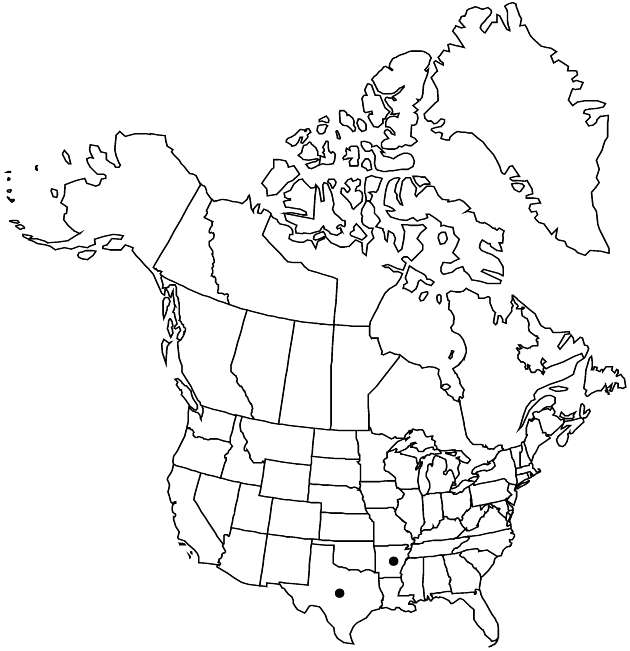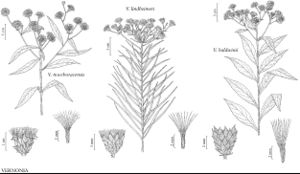Difference between revisions of "Vernonia lindheimeri"
Proc. Amer. Acad. Arts 1: 46. 1847.
Illustrated
imported>Volume Importer |
imported>Volume Importer |
||
| Line 49: | Line 49: | ||
|publication year=1847 | |publication year=1847 | ||
|special status=Illustrated | |special status=Illustrated | ||
| − | |source xml=https:// | + | |source xml=https://bitbucket.org/aafc-mbb/fna-data-curation/src/2e0870ddd59836b60bcf96646a41e87ea5a5943a/coarse_grained_fna_xml/V19-20-21/V19_258.xml |
|tribe=Asteraceae tribe Vernonieae | |tribe=Asteraceae tribe Vernonieae | ||
|genus=Vernonia | |genus=Vernonia | ||
Latest revision as of 20:50, 5 November 2020
Plants 2–5(–8+) dm. Stems ± pannose. Leaves mostly cauline; blades linear, 5–8 cm × 2–4 mm, l/w = 17–25(–40), abaxially densely sericeo-tomentose, adaxially usually glabrate, sometimes sparsely arachno-tomentose. Heads in corymbiform arrays. Peduncles 5–35 mm. Involucres ± obconic to campanulate, 6–10 × 5–8 mm. Phyllaries 40–50+ in 5–6+ series, sericeo-tomentose, including margins, the outer lance-ovate, 1–2 mm, the inner lanceolate to lance-linear, 6–7(–9+) mm, tips acute. Florets 12–24+. Cypselae 3–4 mm; pappi stramineous to purplish, outer scales 20+, 0.6–1.1 mm, contrasting with 20+, 6–7+ mm inner bristles. 2n = 34.
Phenology: Flowering Jun–Aug.
Habitat: Calcareous soils, rocky banks
Elevation: 300 m
Distribution

Ark., Tex., Mexico (Coahuila).
Discussion
Selected References
None.
Lower Taxa
None.
